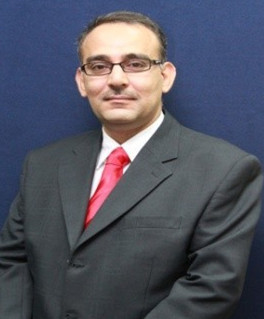Abstract—Africa, with its highly growing population, is in need for environmentally-friendly solutions to meet its food and energy needs. Solar-operated irrigation systems can be used in Egypt where there is no source of electricity and limited access to water. The aim of this paper is to present energy and cost analysis for a simulation of a solar-powered pumping system in Egypt using HOMER software. Experimental work is also carried out, in the GUC campus, for a solar-powered irrigation system which conserves water and energy through the use of soil moisture sensor to regulate the pump flow. The excess energy from the PV is used to power electric loads. Results of the simulation show that the maximum energy generation and consumption occur during the summer season. The annual net energy purchased from the grid is 408 kWh after applying the net metering system. The inverter has the highest initial capital and replacement costs. For the experiments, the irradiance values range from 270 W/m2 to 1450 W/m2 and the panel’s temperature from 15 °C to 60 °C. The power output from the PV panel ranges from 3W to 30W depending on the solar irradiance and ambient temperature. The proposed water pumping system proved to be feasible and successful in conserving water and energy in Egypt.
Index Terms—Powered irrigation, water conservation, energy conservation.
The authors are with Mechatronics Department, German University In Cairo, Egypt (e-mail:mina_ashraf97@hotmail.com).
[PDF]
Cite: Mina Ashraf, M. M. Fouad, and Lamia A. Shihata, "A Solar-Powered Irrigation System for Conserving Water and Energy Consumption in Egypt," Journal of Clean Energy Technologies vol. 7, no. 6, pp. 81-85, 2019.


